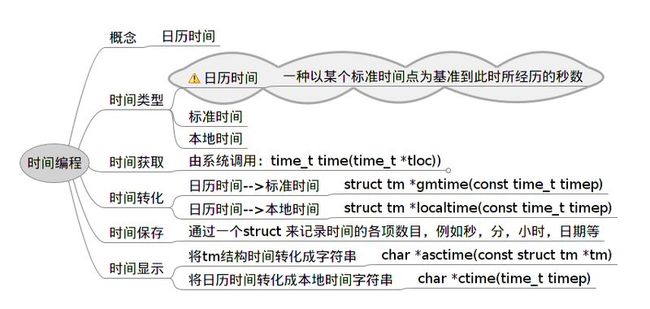- 关于Linux SSH的那些知识点
协议捕手
Linux企业应用经验集linuxssh运维
以下是LinuxSSH相关知识点的系统整理,涵盖基础概念、配置指南、安全实践及实际案例一、SSH核心知识点协议版本SSH-1(不安全,已淘汰)vsSSH-2(推荐,默认协议)加密机制:非对称加密(RSA/ECDSA)交换密钥+对称加密(AES/ChaCha20)传输数据密钥认证流程客户端生成私钥(~/.ssh/id_rsa)和公钥(~/.ssh/id_rsa.pub)公钥上传至服务器~/.ssh/
- Ubuntu 上可以安装ms sqlserver?(不能上网2)
修炼成精
ubuntusqlserverlinux
如果您有一台可以上网的Windows电脑,您可以利用它来下载所需的SQLServer安装包和依赖包,然后将这些包传输到无法上网的Ubuntu服务器上进行离线安装。以下是详细的步骤:步骤1:在Windows电脑上下载所需的软件包安装WSL(WindowsSubsystemforLinux):如果您还没有安装WSL,可以按照以下步骤安装:打开PowerShell并运行以下命令以启用WSL:powers
- Spring Boot 性能优化:如何解决高并发下的瓶颈问题?
zhyoobo
springboot性能优化后端
一、高并发场景的挑战与诊断方法论1.1典型性能瓶颈四层模型在2000+QPS的电商秒杀场景中,SpringBoot应用常面临四层压力传导:网络层瓶颈TCP连接耗尽导致SYN队列溢出(Linux默认仅1024个)SSL握手消耗大量CPU资源(RSA2048单次握手约需10ms)HTTP/1.1的队头阻塞问题(单个连接只能顺序处理请求)应用层瓶颈线程池配置不当引发的上下文切换风暴(默认Tomcat线程
- 查看 Linux 系统中安装的 CUDA 版本
烟锁池塘柳0
LinuxCUDAlinuxubuntu
查看Linux系统中安装的CUDA版本的常见方法:文章目录1查看/usr/local/cuda目录2使用nvcc命令3检查libcublas版本注意:nvidia-smi1查看/usr/local/cuda目录通常,CUDA被安装在/usr/local/cuda目录下,所以可以使用ls命令来查看这个目录是否存在,以及查看其中的内容。ls/usr/local/cuda如果这个目录存在,通常它会是一个
- linuxcentos6笔记
lnes,
linuxcentosvim
目录Linux笔记11目录结构51.1基本指令51.2Ls指令:51.3Pwd指令:61.4Cd指令:71.5mkdir指令:71.6touch指令:71.7cp指令:71.8mv指令:81.9rm指令:81.10vim指令:91.11输出重定向:91.12cat指令:102进阶指令102.1Df指令:102.2free指令:102.3head指令:112.4tail指令:112.5less指令:
- 常用的pdf技术有哪些?--笔记
我不是彭于晏灬
pdf笔记
常用的pdf技术有哪些?1.iTextPDF:iText是著名的开放项目,是用于生成PDF文档的一个java类库。通过iText不仅可以生成PDF或rtf的文档,而且可以将XML、Html文件转化为PDF文件。Openoffice:openoffice是开源软件且能在windows和linux平台下运行,可以灵活的将word或者Excel转化为PDF文档。JasperReport:是一个强大、灵活
- linux 安装jdk1.8
李逍遙️
linux运维服务器
通过终端,使用wget命令下载JDK:wgethttps://download.java.net/openjdk/jdk8u41/ri/openjdk-8u41-b04-linux-x64-14_jan_2020.tar.gz解压下载的文件。你可以使用tar命令解压:tar-xzfopenjdk-8u41-b04-linux-x64-14_jan_2020.tar.gz将解压后的JDK移动到/op
- dig 命令深入学习
服务器linuxdns解析
一、dig命令有什么用dig命令(DomainInformationGroper)是一个用于查询DNS(域名系统)记录的强大工具,它提供了详细的DNS信息,主要用于帮助用户诊断、调试和验证与域名解析相关的问题。除了dig命令,还有一种跟dig功能是差不多的命令nslookup二、dig命令安装如果您的Linux系统默认没有安装dig,可能会提示dig:commandnotfound。请使用以下命令
- 浏览器开发者工具深度调试指南:从入门到高阶技巧
109702008
编程网络人工智能网络
浏览器开发者工具(DevTools)是现代前端工程师的"瑞士军刀",本文将系统解析其核心功能与实战技巧,助您掌握高效调试的终极奥义。一、基础操作与核心功能1.1工具启动方式快捷键:F12(Win/Linux)|Cmd+Opt+I(Mac)右键菜单:网页任意位置右键→检查(Inspect)移动端调试:启用设备模式(Ctrl+Shift+M)1.2核心面板全景图面板名称核心功能快捷键切换Element
- qt-5.15.2 源码编译 Linux
weixin_40857106
服务器运维
QT官方源码下载地址:https://download.qt.io/archive/qt/5.15/5.15.12/single/qt-everywhere-opensource-src-5.15.12.tar.xz安装Qt所需的依赖:sudoaptinstallbuild-essentiallibgl1-mesa-devlibxkbcommon-devlibnss3-devlibdbus-1-d
- 本地源代码运行bun install时报错
星火燎猿
C#疑难杂症处理方案BunBun.js
最近使用Ubuntu系统运行Bun的时候报,Failedtospawnscriptinstallduetoerroros.linux.errno.generic.E.PERMPERM的错误,查看官方文档也没有这个错误描述,最终找到解决方案进行分享。报错问题如下:errorloadingcurrentdirectoryInstalling[2637/2230]error:failedtospawnl
- Beekeeper Studio:高颜值且免费的SQL开发工具
开源项目精选
sql数据库
BeekeeperStudio是一款免费开源的SQL开发和数据库管理工具,具有美观高效、简单易用的特点。BeekeeperStudio基于Vue.js开发,遵循MIT开源协议,支持Windows、Linux以及macOS平台。Stars数17842Forks数1170主要特点安全连接:除了正常的连接,也可以使用SSL加密连接或通过SSH隧道连接;SQL自动补全:代码编辑器支持语法高亮和表名自动补全
- Parrot OS 6.3 发布!全面提升安全性,新增先进工具,带来更高性能
wljslmz
Linux技术linuxParrotOS
2025年2月,全球知名的安全和隐私为核心的Linux发行版——ParrotOS迎来了其最新版本——ParrotOS6.3。作为一款基于Debian的多功能操作系统,ParrotOS旨在为安全专家、开发人员以及关注隐私的用户提供强大的功能支持。ParrotOS6.3版本在性能、工具更新、硬件支持等方面进行了一系列优化,凭借其更加稳定的安全性,最新的工具包,以及对硬件兼容性的大幅提升,ParrotO
- 使用 Python 的 pyttsx3 库进行文本转语音
Bingjia_Hu
python开发语言pyttsx3
1.什么是pyttsx3?1.1pyttsx3是一个Python库,它可以将文本转换为语音。与其他文本转语音库(如gTTS)不同,pyttsx3不依赖于网络服务,它使用本地的TTS(Text-to-Speech)引擎,这使得它在离线状态下也能正常工作1.2pyttsx3支持多平台(Windows、Linux和macOS),且可以对语音的音量、语速以及语音类型等进行控制2.安装pyttsx3要使用p
- 都快3202年了,你还不会用Java生成计算机统一标识符
Heping_Ge2333
java
Java生成计算机统一标识符计算机统一标识符的概念什么是计算机统一标识符?计算机统一标识符就相当于每台电脑每个系统的“身份证”。它是唯一的。通常,计算机统一标识符是根据电脑的硬件情况(主板、cpu的序列号,mac地址)和系统情况(windows/linux/unix)生成的。Java语言的实现下面这段代码浅浅的实现了计算机统一标识符importlombok.Data;importlombok.ex
- Linux常用命令与权限理解总结 续篇
小白要加油努力
Linuxlinux运维服务器
接着前文(Linux常用命令与权限理解总结-CSDN博客)来继续说明一些常见的指令。5.进程管理详解ps-显示进程状态ps命令用于显示当前运行的进程信息。详细用法:ps:显示当前终端的进程ps-e或ps-A:显示所有进程ps-f:全格式列表ps-ef:显示所有进程的完整格式ps-uusername:显示指定用户的进程ps-aux:BSD风格显示所有进程详情ps-axjf:树状结构显示进程(显示父子
- 常用的git和linux命令有哪些?
海姐软件测试
gitlinuxelasticsearch大数据搜索引擎
一、Git常用命令1.仓库与基础操作命令作用常用参数/示例gitinit初始化新仓库gitinitgitclone克隆远程仓库gitclonehttps://github.com/user/repo.gitgitstatus查看仓库状态gitstatus-s(简洁模式)gitadd添加文件到暂存区gitadd.(添加所有文件)gitaddfile1.txtgitcommit提交代码gitcommi
- 从0到1,在Ubuntu 20.04 下编译 openWRT
姓张名江叫大江
软路由ubuntulinuxopenwrt
从0到1,在Ubuntu20.04下编译openWRT/LELD/老毛子固件(跳过八大坑,你就是赢家!)0.申明1.Virtualbox下载与安装2.Linux系统下载与安装2.1Ubuntu下载2.2在Virtualbox中安装Ubuntu3.固件编译4.老毛子固件编译5.后话0.申明本教程所用的软件及代码均是免费开源的,请大家自觉遵守相关的开源协议。在此向开源软件及开源代码的作者们致敬。因本人
- Ubuntu下编译OpenWrt的详细教程
艾丽丝的爱情
ubuntulinux运维编程
OpenWrt是一个基于Linux的嵌入式操作系统,常用于路由器等网络设备。本文将为您提供在Ubuntu操作系统下编译OpenWrt的完整教程。步骤1:安装必要的软件包首先,我们需要安装一些必要的软件包来支持OpenWrt的编译过程。在终端中运行以下命令来安装这些软件包:sudoaptupdatesudoaptinstallbuild-essentiallibncurses5-devzlib1g-
- 零基础怎么开始学网络安全(非常详细)零基础入门到精通,收藏这一篇就够了
程序员羊羊
web安全安全网络php学习
一、学习建议1.了解基础概念:开始之前,了解网络安全的基本概念和术语是很重要的。你可以查找网络安全入门教程或在线课程,了解网络安全领域的基本概念,如黑客、漏洞、攻击类型等。2.网络基础知识:学习计算机网络基础知识,了解网络通信原理,不同网络协议(如TCP/IP)的工作方式,以及网络拓扑结构等。3.操作系统知识:了解常见的操作系统,特别是Windows和Linux。掌握基本的命令行操作和系统管理技能
- Linux篇1-初识Linux
逃跑的机械工
Linuxlinux
1.Linux能干什么Linux能够进行各种语言的开发工作,基本主要以后端语言为主C++,JAVA,python;Linux能进行各种指令操作,从而完成各种的文件相关的管理工作2.Linux基本指令2.1ls指令在Linux中,以.开头的文件,叫做隐藏文件;ls-a显示隐藏文件隐藏文件:Linux配置文件,可以隐藏起来,防止误操作,起到保护作用;ls-l列出文件的详细信息-d将目录象文件一样显示,
- Linux GDB print pretty
小米人er
我的博客linuxgdb
在GDB(GNU调试器)中,setprintprettyon是一个用于格式化结构体和联合体输出的命令。它的核心作用是让GDB在打印复杂数据类型(如结构体、联合体或类)时,以更易读的缩进和换行格式显示内容,而不是将所有字段挤在一行。以下是详细解释:1.命令的作用默认行为:默认情况下,GDB打印结构体或联合体时,所有字段会显示在一行中,例如:(gdb)pmy_struct$1={field1=42,f
- mkcert 极简安装及使用步骤
学亮编程手记
Linuxssl
1.安装mkcertmacOSbrewinstallmkcertLinuxsudoaptinstalllibnss3-toolscurl-JLO"https://dl.filippo.io/mkcert/latest?for=linux/amd64"chmod+xmkcert-v*-linux-amd64sudomvmkcert-v*-linux-amd64/usr/local/bin/mkcer
- 一款适用于 Windows 、Mac 和 Linux 的屏幕录制与截图软件。
Mbblovey
开发语言开源软件电脑java
Screenrec是一款适用于Windows、Mac和Linux的屏幕录制与截图软件。软件本身可以免费使用,只需要登录即可使用全部功能。当咱们打开软件后,电脑右边就会出现一个小漂浮窗。点击上方的图标就能一键开启视频录制、截屏等功能。Screenrec很有意思的是可以在开始录制屏幕的同时录制咱们的网络摄像头视频和麦克风音频。在录制完成后大家可能会发现右下角软件会给大家发出一个提醒。这就是它的另一个特
- Linux安装Anaconda和Jupyter
硬水果糖
人工智能Linuxlinuxjupyter运维
一、了解Anaconda和Jupyter引言:Anaconda是一个流行的开源数据科学平台,广泛用于数据分析、机器学习、人工智能等领域。它是一个集成了大量科学计算和数据科学工具的Python和R编程语言环境。Anaconda的主要目标是简化数据科学和机器学习的开发流程,提供一个易于安装和管理的环境。而预装了大量常用的Python和R库,这些库涵盖了数据科学的各个方面,包括:数据分析:Pandas、
- glm-4v-9b 踩坑(4-bit量化,bitsandbytes 异常)
phynikesi
pytorchglm-4v-9b踩坑bitsandbytes异常
前言本文只分享了自己在体验glm-4v-9b过程中遇到的问题,没有涉及对模型本身以及更多问题的分析,大家可先看问题描述,再决定是否看下去。实验平台:linux系统,RTXA4000。嫌麻烦的可以直接到文未看结论。问题描述16g显卡难以加载模型bitsandbytes异常,模型无法运行加载问题本人设备有限,引用一下别人完整加载模型的数据,大约18.9g。用16g显卡直接报OOM,用8-bit加载还是
- 高通成都linux engineer intern 一面面经
han_xue_feng
java
题解|#KNN算法#在*******里有个叫《题解--2024华南理工校赛.pdf》的文件高通成都linuxengineerintern一面面经两个面试官共25min就结束了,面试氛围还可以,问的很快。1.自我介绍2.问对高通了解多少3.对牛客鼠人传(第四十四集,2024/4/22)刷题:尝试补昨天D,题解看了半天似懂非懂,遂放弃改天再补。做题老是把复杂的问题想简单,简单的问题想复京东物流管理培训
- 基于oracle linux的 DBI/DBD 标准化安装文档(三)
oracle
一、安装DBIDBI(DatabaseInterface)是perl连接数据库的接口。其是perl连接数据库的最优方法,他支持包括Orcale,Sybase,mysql,db2等绝大多数的数据库,下面将简要介绍其安装方法。1.1解压tar-zxvfDBI-1.616_901.tar.gz1.2安装依赖yuminstallperl-ExtUtils-CBuilderperl-ExtUtils-Mak
- linux find 命令超全完整指南
疑犯
linux服务器find命令
linuxfind命令超全完整指南一、基础语法与工作逻辑find[起始路径][表达式][操作]起始路径:指定搜索根目录,默认为当前目录.。支持多路径(如find/etc/var)表达式:定义搜索条件(如文件名、类型、时间等)。操作:对匹配文件执行命令(如删除、压缩等)。二、核心查找条件详解1.按名称查找精确匹配:-name"文件名"find/home-name"example.txt"#精确查找文
- USB摄像头数据获取——libuvc
jbjhzstsl
linux
优点:跨平台支持:libuvc是一个跨平台的库,可以在不同的操作系统上使用,包括Linux、Windows和macOS等。简单易用:libuvc提供了一套简单易用的API,使得使用摄像头设备变得更加简便,尤其适合快速开发原型和简单应用。封装性好:libuvc封装了许多底层细节,如视频格式转换、缓冲区管理等,简化了开发过程。缺点:功能有限:相对于V4L2,libuvc提供的功能相对有限,可能无法满足
- ztree异步加载
3213213333332132
JavaScriptAjaxjsonWebztree
相信新手用ztree的时候,对异步加载会有些困惑,我开始的时候也是看了API花了些时间才搞定了异步加载,在这里分享给大家。
我后台代码生成的是json格式的数据,数据大家按各自的需求生成,这里只给出前端的代码。
设置setting,这里只关注async属性的配置
var setting = {
//异步加载配置
- thirft rpc 具体调用流程
BlueSkator
中间件rpcthrift
Thrift调用过程中,Thrift客户端和服务器之间主要用到传输层类、协议层类和处理类三个主要的核心类,这三个类的相互协作共同完成rpc的整个调用过程。在调用过程中将按照以下顺序进行协同工作:
(1) 将客户端程序调用的函数名和参数传递给协议层(TProtocol),协议
- 异或运算推导, 交换数据
dcj3sjt126com
PHP异或^
/*
* 5 0101
* 9 1010
*
* 5 ^ 5
* 0101
* 0101
* -----
* 0000
* 得出第一个规律: 相同的数进行异或, 结果是0
*
* 9 ^ 5 ^ 6
* 1010
* 0101
* ----
* 1111
*
* 1111
* 0110
* ----
* 1001
- 事件源对象
周华华
JavaScript
<!DOCTYPE html PUBLIC "-//W3C//DTD XHTML 1.0 Transitional//EN" "http://www.w3.org/TR/xhtml1/DTD/xhtml1-transitional.dtd">
<html xmlns="http://www.w3.org/1999/xhtml&q
- MySql配置及相关命令
g21121
mysql
MySQL安装完毕后我们需要对它进行一些设置及性能优化,主要包括字符集设置,启动设置,连接优化,表优化,分区优化等等。
一 修改MySQL密码及用户
- [简单]poi删除excel 2007超链接
53873039oycg
Excel
采用解析sheet.xml方式删除超链接,缺点是要打开文件2次,代码如下:
public void removeExcel2007AllHyperLink(String filePath) throws Exception {
OPCPackage ocPkg = OPCPac
- Struts2添加 open flash chart
云端月影
准备以下开源项目:
1. Struts 2.1.6
2. Open Flash Chart 2 Version 2 Lug Wyrm Charmer (28th, July 2009)
3. jofc2,这东西不知道是没做好还是什么意思,好像和ofc2不怎么匹配,最好下源码,有什么问题直接改。
4. log4j
用eclipse新建动态网站,取名OFC2Demo,将Struts2 l
- spring包详解
aijuans
spring
下载的spring包中文件及各种包众多,在项目中往往只有部分是我们必须的,如果不清楚什么时候需要什么包的话,看看下面就知道了。 aspectj目录下是在Spring框架下使用aspectj的源代码和测试程序文件。Aspectj是java最早的提供AOP的应用框架。 dist 目录下是Spring 的发布包,关于发布包下面会详细进行说明。 docs&nb
- 网站推广之seo概念
antonyup_2006
算法Web应用服务器搜索引擎Google
持续开发一年多的b2c网站终于在08年10月23日上线了。作为开发人员的我在修改bug的同时,准备了解下网站的推广分析策略。
所谓网站推广,目的在于让尽可能多的潜在用户了解并访问网站,通过网站获得有关产品和服务等信息,为最终形成购买决策提供支持。
网站推广策略有很多,seo,email,adv
- 单例模式,sql注入,序列
百合不是茶
单例模式序列sql注入预编译
序列在前面写过有关的博客,也有过总结,但是今天在做一个JDBC操作数据库的相关内容时 需要使用序列创建一个自增长的字段 居然不会了,所以将序列写在本篇的前面
1,序列是一个保存数据连续的增长的一种方式;
序列的创建;
CREATE SEQUENCE seq_pro
2 INCREMENT BY 1 -- 每次加几个
3
- Mockito单元测试实例
bijian1013
单元测试mockito
Mockito单元测试实例:
public class SettingServiceTest {
private List<PersonDTO> personList = new ArrayList<PersonDTO>();
@InjectMocks
private SettingPojoService settin
- 精通Oracle10编程SQL(9)使用游标
bijian1013
oracle数据库plsql
/*
*使用游标
*/
--显示游标
--在显式游标中使用FETCH...INTO语句
DECLARE
CURSOR emp_cursor is
select ename,sal from emp where deptno=1;
v_ename emp.ename%TYPE;
v_sal emp.sal%TYPE;
begin
ope
- 【Java语言】动态代理
bit1129
java语言
JDK接口动态代理
JDK自带的动态代理通过动态的根据接口生成字节码(实现接口的一个具体类)的方式,为接口的实现类提供代理。被代理的对象和代理对象通过InvocationHandler建立关联
package com.tom;
import com.tom.model.User;
import com.tom.service.IUserService;
- Java通信之URL通信基础
白糖_
javajdkwebservice网络协议ITeye
java对网络通信以及提供了比较全面的jdk支持,java.net包能让程序员直接在程序中实现网络通信。
在技术日新月异的现在,我们能通过很多方式实现数据通信,比如webservice、url通信、socket通信等等,今天简单介绍下URL通信。
学习准备:建议首先学习java的IO基础知识
URL是统一资源定位器的简写,URL可以访问Internet和www,可以通过url
- 博弈Java讲义 - Java线程同步 (1)
boyitech
java多线程同步锁
在并发编程中经常会碰到多个执行线程共享资源的问题。例如多个线程同时读写文件,共用数据库连接,全局的计数器等。如果不处理好多线程之间的同步问题很容易引起状态不一致或者其他的错误。
同步不仅可以阻止一个线程看到对象处于不一致的状态,它还可以保证进入同步方法或者块的每个线程,都看到由同一锁保护的之前所有的修改结果。处理同步的关键就是要正确的识别临界条件(cri
- java-给定字符串,删除开始和结尾处的空格,并将中间的多个连续的空格合并成一个。
bylijinnan
java
public class DeleteExtraSpace {
/**
* 题目:给定字符串,删除开始和结尾处的空格,并将中间的多个连续的空格合并成一个。
* 方法1.用已有的String类的trim和replaceAll方法
* 方法2.全部用正则表达式,这个我不熟
* 方法3.“重新发明轮子”,从头遍历一次
*/
public static v
- An error has occurred.See the log file错误解决!
Kai_Ge
MyEclipse
今天早上打开MyEclipse时,自动关闭!弹出An error has occurred.See the log file错误提示!
很郁闷昨天启动和关闭还好着!!!打开几次依然报此错误,确定不是眼花了!
打开日志文件!找到当日错误文件内容:
--------------------------------------------------------------------------
- [矿业与工业]修建一个空间矿床开采站要多少钱?
comsci
地球上的钛金属矿藏已经接近枯竭...........
我们在冥王星的一颗卫星上面发现一些具有开采价值的矿床.....
那么,现在要编制一个预算,提交给财政部门..
- 解析Google Map Routes
dai_lm
google api
为了获得从A点到B点的路劲,经常会使用Google提供的API,例如
[url]
http://maps.googleapis.com/maps/api/directions/json?origin=40.7144,-74.0060&destination=47.6063,-122.3204&sensor=false
[/url]
从返回的结果上,大致可以了解应该怎么走,但
- SQL还有多少“理所应当”?
datamachine
sql
转贴存档,原帖地址:http://blog.chinaunix.net/uid-29242841-id-3968998.html、http://blog.chinaunix.net/uid-29242841-id-3971046.html!
------------------------------------华丽的分割线--------------------------------
- Yii使用Ajax验证时,如何设置某些字段不需要验证
dcj3sjt126com
Ajaxyii
经常像你注册页面,你可能非常希望只需要Ajax去验证用户名和Email,而不需要使用Ajax再去验证密码,默认如果你使用Yii 内置的ajax验证Form,例如:
$form=$this->beginWidget('CActiveForm', array( 'id'=>'usuario-form',&
- 使用git同步网站代码
dcj3sjt126com
crontabgit
转自:http://ued.ctrip.com/blog/?p=3646?tn=gongxinjun.com
管理一网站,最开始使用的虚拟空间,采用提供商支持的ftp上传网站文件,后换用vps,vps可以自己搭建ftp的,但是懒得搞,直接使用scp传输文件到服务器,现在需要更新文件到服务器,使用scp真的很烦。发现本人就职的公司,采用的git+rsync的方式来管理、同步代码,遂
- sql基本操作
蕃薯耀
sqlsql基本操作sql常用操作
sql基本操作
>>>>>>>>>>>>>>>>>>>>>>>>>>>>>>>>>>>>
蕃薯耀 2015年6月1日 17:30:33 星期一
&
- Spring4+Hibernate4+Atomikos3.3多数据源事务管理
hanqunfeng
Hibernate4
Spring3+后不再对JTOM提供支持,所以可以改用Atomikos管理多数据源事务。Spring2.5+Hibernate3+JTOM参考:http://hanqunfeng.iteye.com/blog/1554251Atomikos官网网站:http://www.atomikos.com/ 一.pom.xml
<dependency>
<
- jquery中两个值得注意的方法one()和trigger()方法
jackyrong
trigger
在jquery中,有两个值得注意但容易忽视的方法,分别是one()方法和trigger()方法,这是从国内作者<<jquery权威指南》一书中看到不错的介绍
1) one方法
one方法的功能是让所选定的元素绑定一个仅触发一次的处理函数,格式为
one(type,${data},fn)
&nb
- 拿工资不仅仅是让你写代码的
lampcy
工作面试咨询
这是我对团队每个新进员工说的第一件事情。这句话的意思是,我并不关心你是如何快速完成任务的,哪怕代码很差,只要它像救生艇通气门一样管用就行。这句话也是我最喜欢的座右铭之一。
这个说法其实很合理:我们的工作是思考客户提出的问题,然后制定解决方案。思考第一,代码第二,公司请我们的最终目的不是写代码,而是想出解决方案。
话粗理不粗。
付你薪水不是让你来思考的,也不是让你来写代码的,你的目的是交付产品
- 架构师之对象操作----------对象的效率复制和判断是否全为空
nannan408
架构师
1.前言。
如题。
2.代码。
(1)对象的复制,比spring的beanCopier在大并发下效率要高,利用net.sf.cglib.beans.BeanCopier
Src src=new Src();
BeanCopier beanCopier = BeanCopier.create(Src.class, Des.class, false);
- ajax 被缓存的解决方案
Rainbow702
JavaScriptjqueryAjaxcache缓存
使用jquery的ajax来发送请求进行局部刷新画面,各位可能都做过。
今天碰到一个奇怪的现象,就是,同一个ajax请求,在chrome中,不论发送多少次,都可以发送至服务器端,而不会被缓存。但是,换成在IE下的时候,发现,同一个ajax请求,会发生被缓存的情况,只有第一次才会被发送至服务器端,之后的不会再被发送。郁闷。
解决方法如下:
① 直接使用 JQuery提供的 “cache”参数,
- 修改date.toLocaleString()的警告
tntxia
String
我们在写程序的时候,经常要查看时间,所以我们经常会用到date.toLocaleString(),但是date.toLocaleString()是一个过时 的API,代替的方法如下:
package com.tntxia.htmlmaker.util;
import java.text.SimpleDateFormat;
import java.util.
- 项目完成后的小总结
xiaomiya
js总结项目
项目完成了,突然想做个总结但是有点无从下手了。
做之前对于客户端给的接口很模式。然而定义好了格式要求就如此的愉快了。
先说说项目主要实现的功能吧
1,按键精灵
2,获取行情数据
3,各种input输入条件判断
4,发送数据(有json格式和string格式)
5,获取预警条件列表和预警结果列表,
6,排序,
7,预警结果分页获取
8,导出文件(excel,text等)
9,修

